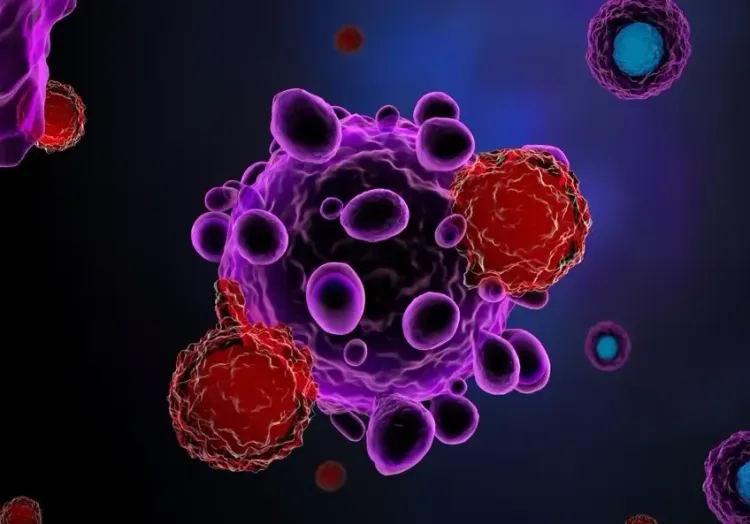Investigation Reveals Impact of Immune Cells on Cancer Treatment Efficacy

Synopsis
Key Takeaways
- The immune system's role in cancer treatment is crucial.
- Higher T cell counts in the blood improve survival rates.
- The study analyzed over 90,000 whole genome sequencing samples.
- ImmuneLENS technique was pivotal in the research.
- Future applications may include early cancer detection.
New Delhi, Feb 18 (NationPress) A recent study indicates that the immune systems of individuals diagnosed with cancer might significantly influence their treatment outcomes, as revealed on Tuesday.
Conducted by researchers at University College London and the Francis Crick Institute, the research highlighted that cancer patients exhibiting a greater number of immune cells in their bloodstream demonstrate improved survival rates.
The team employed an innovative technique known as Immune Lymphocyte Estimation from Nucleotide Sequencing (ImmuneLENS), which facilitates the calculation of the proportions of T cells and B cells (specific immune cell types) derived from whole genome sequencing (WGS) data.
In their analysis, the researchers examined more than 90,000 WGS samples from both healthy individuals and cancer patients. The outcomes reported in the journal Nature Genetics indicated that cancer patients possess a lower percentage of T cells circulating in their blood compared to their healthy counterparts.
Moreover, the proportion of T cells emerged as a robust predictor of cancer outcomes, with elevated levels correlating with a 47 percent reduction in mortality over five years post-surgery.
This finding remained significant after adjusting for factors such as age, cancer stage, and across various cancer types. These biological markers could be integrated into existing genetic diagnostic tests, providing clinicians with enhanced insights for tailoring treatment plans, according to the researchers.
Professor Nicholas McGranahan, the senior author from the UCL Cancer Institute, stated that while previous immune system assessments primarily focused on the tumor, this new tool could allow physicians to “better predict a cancer patient's survival based on the number of T cells in the blood, rather than just those found in the tumor.”
The study also noted that among cancer patients, particularly males, the level of immune cells in the bloodstream declines more rapidly. However, the reasons for these gender-related differences remain unclear.
Additionally, the researchers discovered that individuals who appeared healthy at the time of their sequencing sample but later developed cancer had below-average levels of B cells in their blood.
This observation might indicate undiagnosed early-stage cancer or pre-cancerous alterations in the immune system, which could serve as an early indicator of disease or even contribute to cancer progression.
This knowledge may be valuable in future efforts for early cancer detection or in assisting clinicians in understanding how patients might respond to treatment, according to the research team.










